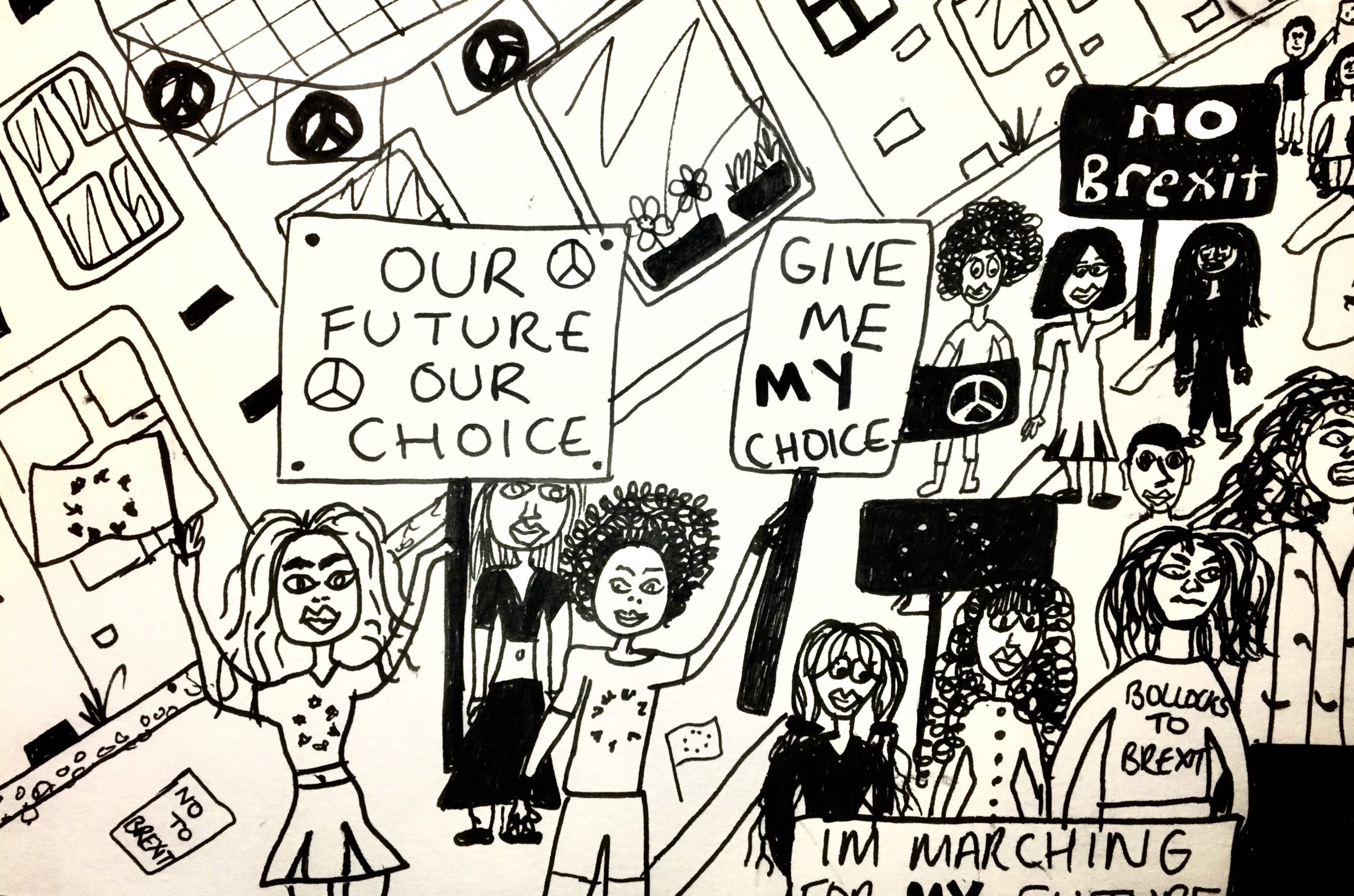[Written by John Hill]
[Image Credits: Amy Forrest]
In the field of psychology, there is a theory called the optimism bias, which holds that people tend to believe that they are less likely to experience negative occurrences in the future. Regarding the oversized elephant in the political room, the issue of Brexit currently appears to be an anomalous case where everyone is dissatisfied and somewhat wary. Whether a remainer or a leaver, there is little doubt that this negative bias has taken a significant toll on our mental health – especially with the ongoing political game of chess being played between the government and remainers in Parliament making us all lean on the edges of our seats.
Everyone is uncertain. While Parliament plays a great game of wills, the people are left stuck in confusion as to the direction Britain will be taking. Not knowing is an uncomfortable experience. Uncertainty can feel dangerous because we cannot predict with confidence nor control what will happen and as a result both our hearts and minds race. This uncertainty has even led to civil strife such as when ‘Momentum’ — a pro-Jeremy Corbyn group — occupied and blockaded bridges and roads across London as part of radical action to protest the Prime Minister’s bid to prorogue Parliament. This display of civil discord suggests that it’s reasonable to claim that the country’s uncertainty has contributed in fuelling a national depression since the Brexit issue has led to instances of discontent disturbing the quotidian lives of the people.
Media coverage fuels the fire. Neither side is happy, remainers are angry at a potential no-deal and leavers are angry at the lack of progression with Brexit. Meanwhile, media coverage seems to be pitting both sides against each other. The European Union Justice Commissioner Vera Jourva warned that the “media can build the culture of dialogue or sow divisions” [1]. This is a very important point regarding mental health. As you can guess, feelings of isolation within communities carrying a culture of exclusivity don’t exactly help a person’s mental health and, some argue, they are also a major contributory factor to depression [2]. It has also led to a level of discrimination against people with distinct political opinions outside the community consensus in institutions like universities.
Then there is fear – should I apply for an Irish passport on some tenuous connection? Is Britain as democratic as people claim? Should we remain optimistic about Brexit? A lot of scare-mongering has raised these all too menacingly familiar questions. They all appear to come back to uncertainty and media coverage in order to create fear around Brexit.
Out of the entire demographic of this country I believe we, the younger generations, are most deeply affected by all this blind uncertainty, parasitical media coverage and its resultant fear. We, as young people, are far more invested in the political climate and are far more responsive to current affairs; just take the recent student strike for climate change as an example of our willingness to pause our normal lives for what we believe detrimentally affects not only the United Kingdom, but the world. We currently live in unprecedented times and are to inherit an unpredictable future, this leaves us on shaky ground and no doubt has a substantial impact upon our minds. It is that lingering, irrepressible burden that lurks in the back of our minds. Whether you are a remainer or a leaver, it is fear that we share.
Don’t worry, I’m not leaving it there. Let me return to the concept of the optimism bias. Despite these three Nazgûl riding us all into perplexity and crisis, I remain optimistic. No matter the economic worries remainers raise, there are silver linings to Brexit. The government is committed to globalised trade expansion, as the beaming Secretary of State of International Trade claimed in a recent Instagram post of her riding a bike in the cold dreary rain in Sydney (perhaps a metaphor for the crisis we are in) that Britain will “get on your [her] bike and look for exports” with a smile on her face [3]. Her trade deals and freeports policy will help build the economy as an alternative to our dependency on the single market. In terms of finance, Britain will return to what it is good at: global, low-tax, City finance prosperity. Brexit has not even passed, and London has already surpassed New York as the leading investor in fintech. It is opportunities such as these and many more that maintain my optimism in Britain and its potential on the modern world stage.
[1] https://europa.eu/rapid/press-release_SPEECH-18-5883_en.htm?locale=en
[2] https://www.cambridge.org/core/services/aop-cambridge-core/content/view/55E45B7BB681BA83283BE1C7640A886B/S0007125000247594a.pdf/social_exclusion_and_mental_health.pdf (“She argued that… Others and institutions”. p. 480)
[3] https://www.instagram.com/p/B2f-6ahgEsh/?utm_source=ig_web_copy_link

